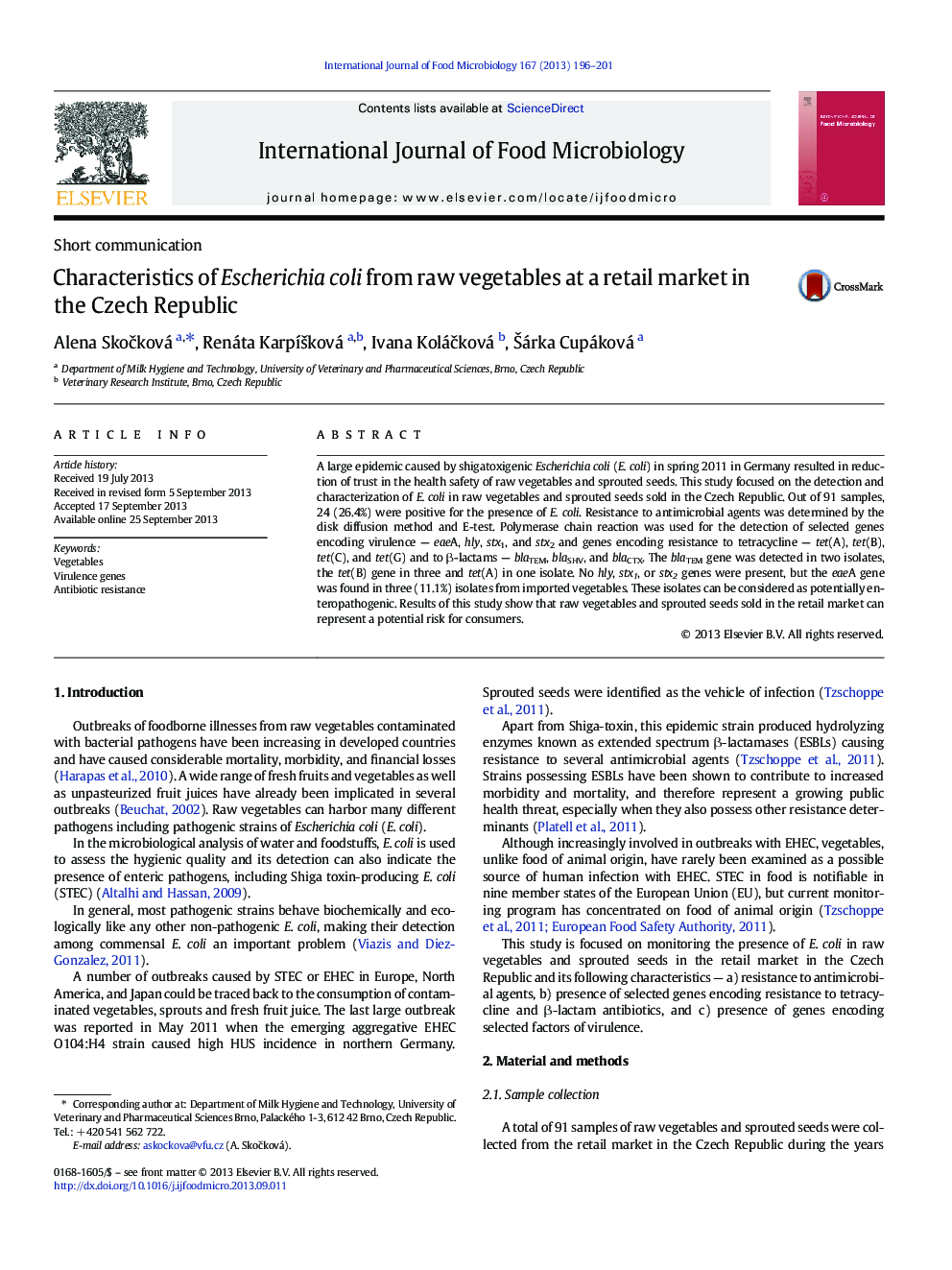| Article ID | Journal | Published Year | Pages | File Type |
|---|---|---|---|---|
| 4367132 | International Journal of Food Microbiology | 2013 | 6 Pages |
•91 samples of raw vegetables and sprouted seeds were investigated for the presence of E. coli.•Leafy vegetables and sprouted seeds were the most common source of E. coli.•Both virulence and resistance genes were detected in investigated isolates.
A large epidemic caused by shigatoxigenic Escherichia coli (E. coli) in spring 2011 in Germany resulted in reduction of trust in the health safety of raw vegetables and sprouted seeds. This study focused on the detection and characterization of E. coli in raw vegetables and sprouted seeds sold in the Czech Republic. Out of 91 samples, 24 (26.4%) were positive for the presence of E. coli. Resistance to antimicrobial agents was determined by the disk diffusion method and E-test. Polymerase chain reaction was used for the detection of selected genes encoding virulence — eaeA, hly, stx1, and stx2 and genes encoding resistance to tetracycline — tet(A), tet(B), tet(C), and tet(G) and to β-lactams — blaTEM, blaSHV, and blaCTX. The blaTEM gene was detected in two isolates, the tet(B) gene in three and tet(A) in one isolate. No hly, stx1, or stx2 genes were present, but the eaeA gene was found in three (11.1%) isolates from imported vegetables. These isolates can be considered as potentially enteropathogenic. Results of this study show that raw vegetables and sprouted seeds sold in the retail market can represent a potential risk for consumers.
